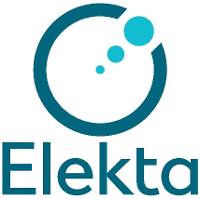Increasing the accuracy of radiotherapy to improve cancer treatment
The University Medical Center Groningen (NL) and Elekta Limited (UK) join forces to establish a quality control method allowing to improve the accuracy of photon radiotherapy treatment. This is particularly important for patients with thoracic tumours for which treatment accuracy may be compromised due to motion of the target caused by e.g. breathing.
Every year approximately 15,000 new cases of lung and esophageal cancer are diagnosed in the Netherlands. The majority of these patients receive radiotherapy as part of their initial treatment. While treatment outcomes have significantly improved, recurrence of the tumour is a frequent problem. Intensifying treatment is hampered because radiation delivery to healthy tissues – including the heart and lungs – surrounding the tumour, may cause severe side effects. Hence, broadening the therapeutic window of radiotherapy in thoracic tumours is highly needed.
The aim of the current research project is to develop treatment quality evaluation during and after treatment by implementing a methodology for a fraction-wise four-dimensional 4D photon dose reconstruction and accumulation. Such treatment quality evaluation will allow to monitor the 3D dose delivery over time (as a 4th dimension) during each fraction, enabling timely adjustment of the accurate dose delivery if needed.
To achieve this aim, this project will:
- identify the best method to reconstruct the 4D dose delivery;
- establish a workflow to optimise the 4D dose calculations;
- evaluate the outcomes of applying 4D dose calculation in adaptive treatment in a pilot study.
This will allow to determine how to effectively and efficiently implement 4D dose reconstruction for quality control and guide treatment adaptation to increase treatment accuracy in clinical practice.


